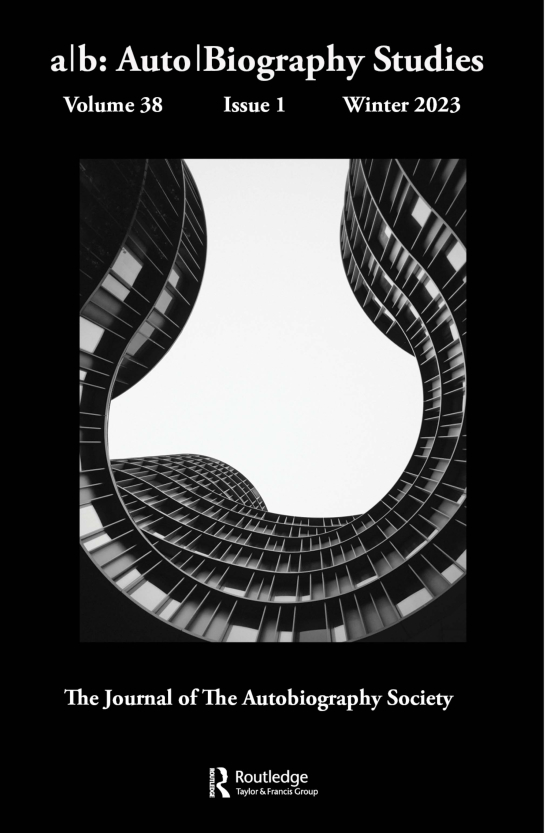Submit a Manuscript to the Journal
a/b: Auto/Biography Studies
For a Special Issue on
Lives, Selves, Media and #MeToo: Anticipating Futures, Tracing Histories and Articulating the Present
Abstract deadline
04 March 2024
Manuscript deadline
02 September 2024

Special Issue Editor(s)
Emma Maguire,
James Cook University
[email protected]
Kylie Cardell,
Flinders University
[email protected]
Lives, Selves, Media and #MeToo: Anticipating Futures, Tracing Histories and Articulating the Present
This issue explores #MeToo not as an isolated media flare, but as part of a wider social, cultural and historical matrix wherein auto/biographical modes and practices collide and connect with feminist resistance—as well as negotiate and impel its backlash. #MeToo crosses media borders, inviting scholars to consider how media shape and are shaped by political movements, and how transmedia forms a part of this story.
Testimony is the dominant form of engagement with the #MeToo hashtag. Millions of tweets have offered testimony and asked for the public to bear witness as people who have long been silent about their experiences of sexual violence, most of them women, speak out on social media. That a feminist phenomenon occurring in the age of the selfie has been propelled by auto/biographical statements, is extremely online, and has “Me” at its centre is possibly unsurprising and legitimately—to scholars of life narrative, at least—fascinating.
Me Too began in 2006 as a Black, feminist grassroots movement founded by activist Tarana Burke. The focus was local support for Black girls and women who had survived sexual violence, and Burke used Myspace to spread her message. The Twitter hashtag exploded in 2017 in social media ecosystem different from the 2006 Myspace era. The flood of mass digital testimony drew attention from news media, inspiring books, and breaking a long-held silence by exposing perpetrators of sexual violence, chiefly in the entertainment and media industry.
Likewise, #MeToo spills over historical and national borders, and is embedded within broader discourses and histories of feminist activism and sexual violence. We want to explore what has alternately been called the ‘moment’ and the ‘movement’ of #MeToo/Me Too beyond the temporal location of the hashtag and phrase. What conditions, movements, stories, and texts came before #MeToo that benefit from re-examination (or refresh) in light of #MeToo? What conditions, movements, stories, and texts are emerging after #MeToo and might productively be linked to this significant phenomenon? And where might we imagine the future leads now? Have futures been opened up or closed off by #MeToo? What have we learned from the past that would benefit future feminist activism addressing sexual violence?
This issue welcomes broad interpretations of “media” to think beyond the social media context and into print media, ephemera, sound and screen media, with a view to examining the significance of mediation (and media contexts) in testimony, auto/biographical practices, and feminist activism.
Our suggestions for engaging with this theme include:
- How media forms and networks (digital, print and beyond) have played a part in feminist resistance
- Stories, reportage, memoir, and media before and/or after #MeToo
- The violent rhythms of ‘progress’ and backlash, and how this pattern shapes the stories we tell about gender and violence
- Backlash politics and social media
- Hashtag activism
- Testimony and media(tion)
- The embeddedness of media in social and political life, relevant to gendered violence and feminist protest
- Forms of protest and the evolution of protest in relation to gender and violence
- Addressing the problems of #MeToo
- Racism, sexism and other forms of ideological violence within activist movements
- Testimony and feminist media history/feminist activism
- Posthuman feminist pasts, presents and futures
- Health humanities approaches to #MeToo
- Mediating sexual trauma in the past and present
- Mass testimony and collective trauma
- Digital activism, policy, and structural change
- Parallel phenomena (what is occurring parallel to #MeToo and how would we benefit from seeing ‘across’ media and political contexts?)
- Memoir and other narratives of childhood trauma
- Feminist resistance, gendered violence and celebrity culture
- Teaching #MeToo
- #MeToo futures
- Memoir of the movement including Tarana Burke’s Unbound: My Story of Liberation and the Birth of the Me Too Movement
Looking to Publish your Research?
Find out how to publish your research open access with Taylor & Francis Group.
Choose open accessSubmission Instructions
We are seeking 250-300 word abstracts for articles of up to 6000 words, and shorter creative or critical contributions of up to 1000 words. Please make clear in your abstract which format your proposal pertains to.
Abstracts are due on 4 March 2024, and full papers will be due on 2 September 2024.
Please submit abstracts via email to: [email protected] and [email protected]
We are also planning a collaborative workshop for potential contributors in July 2024, and details will follow for those whose full papers are requested.
The editorial team for this special issue is led by Kylie Cardell (Flinders University) and Emma Maguire (James Cook University). Please submit abstracts via email to: [email protected] and [email protected]